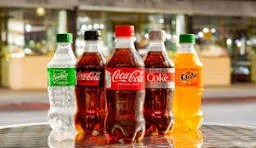Coca-Cola has scaled back its packaging sustainability goals, reducing its target for recycled material in packaging to 35-40% by 2035, down from a previous commitment of 50% by 2030. The company also adjusted its recycling pledge from a 2018 goal of recycling the plastic equivalent of every bottle produced by 2030 to a less specific aim of collecting 70-75% of bottles and cans annually, with no timeline provided.
The changes have drawn criticism from environmental activists who accuse the beverage giant of undermining progress in addressing plastic pollution. Coca-Cola, identified as the world’s top plastic polluter for six consecutive years by Break Free from Plastic, has faced ongoing scrutiny over its environmental impact. In 2023, Coca-Cola waste accounted for 33,830 of the 537,719 pieces of plastic audited across 40 countries, with its bottles frequently found discarded in public spaces.

The company defended its revised goals, citing decades of sustainability work and challenges in achieving its previous targets. Despite efforts such as introducing 100% recycled plastic bottles in the U.S., environmental organizations argue that Coca-Cola’s new targets fail to meaningfully address the global plastic crisis.
A report by the Minderoo Foundation highlighted the rising production of plastic, primarily made from fossil fuel-based polymers, further exacerbating pollution issues. Critics describe Coca-Cola’s updated goals as insufficient, urging stronger accountability from investors and governments to address the environmental impact of single-use plastics.
Source: CNN
